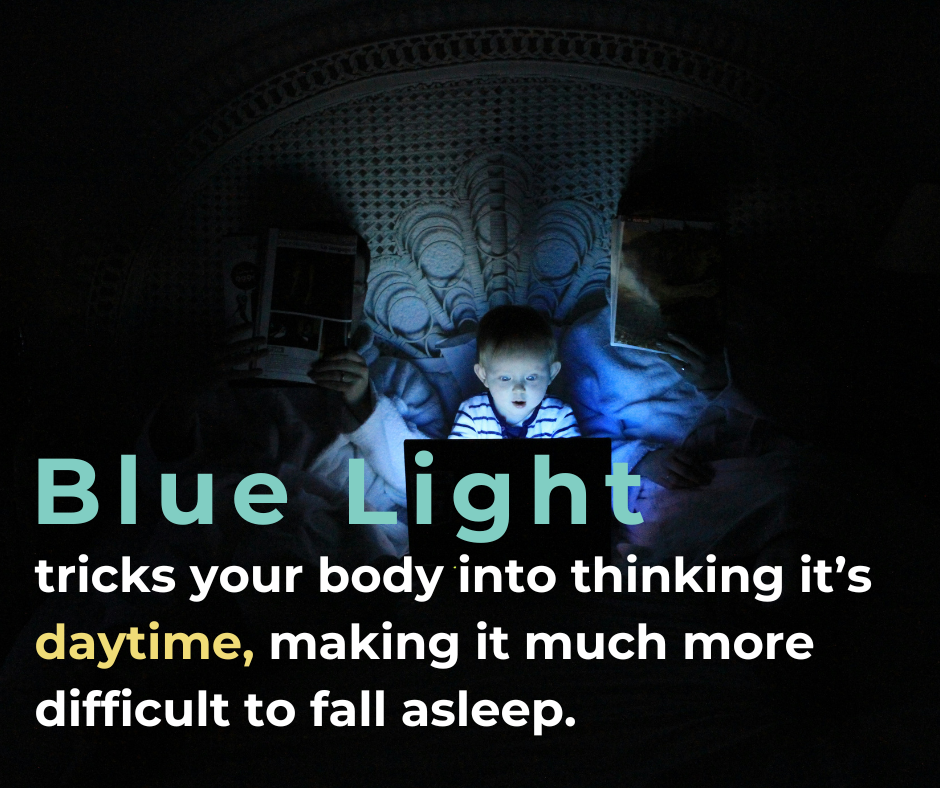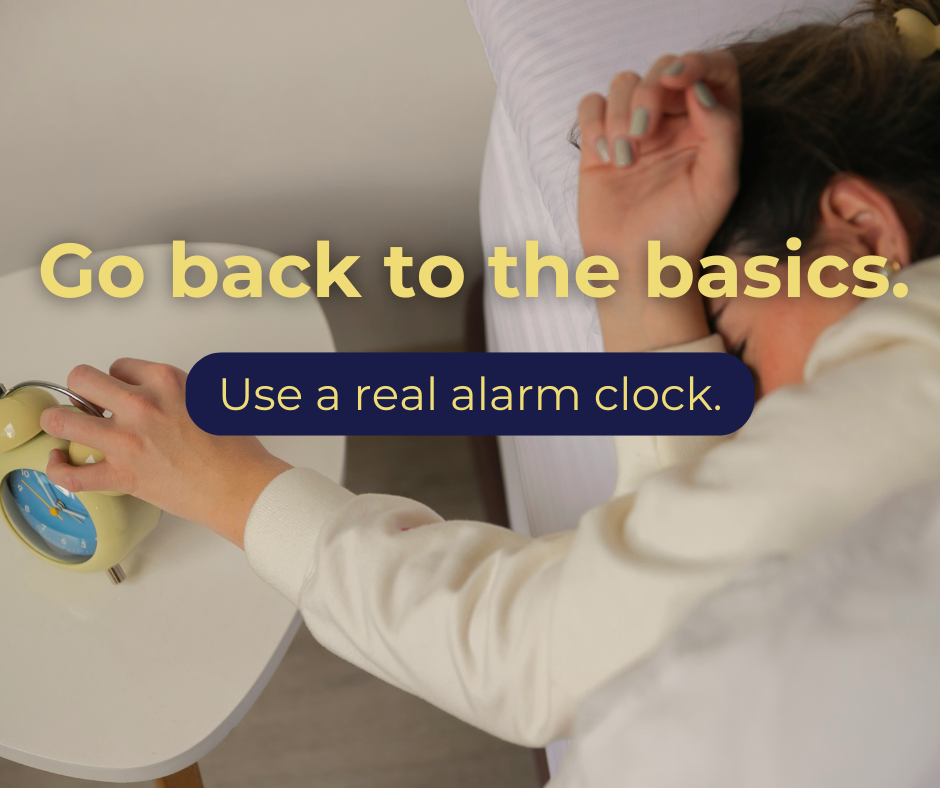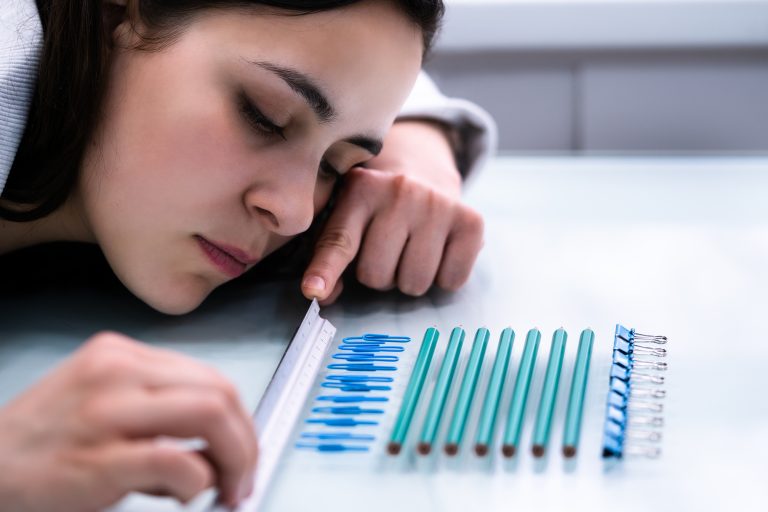Have you ever wondered why you feel tired even after spending hours in bed? Your nighttime phone habits might be to blame.
Picture this: You climb into bed, ready to catch up on some much-needed rest. But instead of drifting off to dreamland, you find yourself scrolling through Instagram reels or replying to late-night texts. Fast forward to the morning, and you feel like a zombie who just pulled an all-nighter. Sound familiar? You’re not alone.
Our nightly obsession with screens, especially phones, is wreaking havoc on our sleep. The blue light emitted by these devices messes with melatonin—your body’s natural sleep hormone—making it harder to fall and stay asleep. And let’s not forget the constant pings and notifications that keep your brain on high alert when it should be winding down.
Understanding how your nighttime phone habits affect your sleep is crucial, not just for waking up refreshed but for your overall health. Sleep isn’t just beauty rest; it’s a key player in your mental well-being, focus, and even your emotional stability. Ready to put the phone down and reclaim your sleep? Let’s dive in!
Why Your Phone Keeps You Awake at Night
You might love your phone, but it’s not exactly your sleep’s best friend. Here’s why:
Blue Light: The Sneaky Sleep Saboteur
Your phone emits blue light, which might sound fancy, but it’s really just a sleep disruptor in disguise. Blue light tricks your brain into thinking it’s still daytime by suppressing melatonin production. Without melatonin, your body struggles to get into sleep mode, leaving you tossing and turning instead of snoozing.

The Circadian Rhythm Wrecking Ball
Your body has a natural sleep-wake cycle, also known as the circadian rhythm. Blue light exposure at night throws this rhythm out of sync. It’s like showing up to a party just as it’s ending—your body’s clock gets confused, making it harder to fall asleep and stay asleep.
The Morning After: Fatigue and Fog
Ever wake up feeling like your brain is running on dial-up internet? That’s what happens when your sleep is interrupted. Poor sleep quality caused by phone use can lead to fatigue, trouble focusing, and an overall sluggish feeling that no amount of coffee can fix.
Want to break free from this cycle? Start by understanding the impact and taking small steps to limit nighttime phone use. Check out more tips for better mental health and wellness on the PsychPlus Homepage.
The Hidden Toll of Late-Night Scrolling on Your Mental Health
Scrolling through your phone late at night might feel relaxing, but it’s anything but! Here’s how it takes a toll on your mental health:
Anxiety and Depression on the Rise
Poor sleep caused by excessive phone use can lead to increased feelings of anxiety and depression. It’s like a vicious cycle—your phone keeps you awake, the lack of sleep messes with your emotions, and you’re left feeling even worse the next day.
Heightened Stress Levels
Late-night scrolling doesn’t just steal your rest; it also keeps your mind in overdrive. Whether you’re reading about world events or engaging in heated debates online, your stress levels skyrocket, making it harder to unwind.
Breaking this habit isn’t just about getting better sleep; it’s about protecting your mental health. Curious about managing emotional triggers and stress? Check out our related blog: How to Manage and Cope with Anxious Attachment Styles.
Easy Ways to Cut Down on Phone Time Before Bed
Ready to kick the phone habit and get better sleep? Here are some simple and practical tips:
1. Set a Bedtime Phone Curfew
Make it a rule: no screens at least an hour before bedtime. This gives your brain time to wind down and prepare for sleep without distractions.
2. Use Night Mode or Blue Light Filters
Most smartphones have a night mode or blue light filter. Turn it on in the evening to reduce the impact on your melatonin production and help your body recognize it’s time to rest.
3. Replace Scrolling with Relaxing Activities
Swap out the endless social media scrolling for something more calming, like reading a book, journaling, or meditating. These activities signal to your brain that it’s time to relax.
4. Create a Charging Station Outside the Bedroom
Keep temptation out of reach by setting up a charging station for your devices outside your bedroom. This simple change can make it easier to stick to your no-phone-before-bed rule.
5. Use an Actual Alarm Clock
Ditch the “I need my phone for the alarm” excuse and invest in a good old-fashioned alarm clock. It’ll keep your phone out of your bedroom and help you wake up on time.
Improving your sleep habits doesn’t have to be overwhelming. For more insights, check out our related blog: The Connection Between Sleep and Mental Health.

When to Get Help for Sleep and Mental Health Problems
Sometimes, improving your sleep hygiene isn’t enough, and that’s okay. Here’s when you might need to seek help:
Recognizing When It’s Time to Consult a Professional
If you’re consistently struggling to fall or stay asleep, or if your lack of sleep is affecting your mental health, it might be time to reach out to a therapist or psychiatrist. Persistent sleep issues can sometimes signal underlying mental health conditions that require expert care.
The Benefits of Professional Guidance
Therapists and psychiatrists can help identify the root causes of your sleep problems and provide tailored strategies to address them. Whether it’s through therapy, medication, or a combination of approaches, professional support can make a significant difference.
Don’t hesitate to take that first step. Book an appointment today and start your journey to better sleep and mental health. Visit our Book an Appointment page to get started.
Conclusion
The connection between phone use and poor sleep is clear, but the good news is that small changes can have a big impact. By reducing nighttime phone use, you can improve not only your sleep but also your overall mental health and well-being.
Ready to learn more? Explore more informative content on our Blog Page for additional tips and insights.
Take the first step toward better mental health and restful sleep. Visit PsychPlus to learn more or schedule an appointment today!





